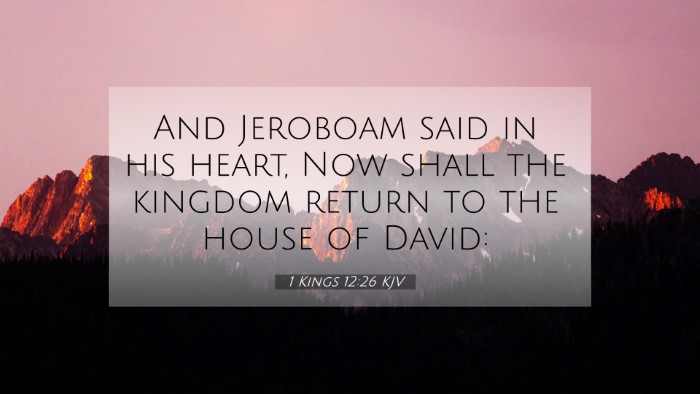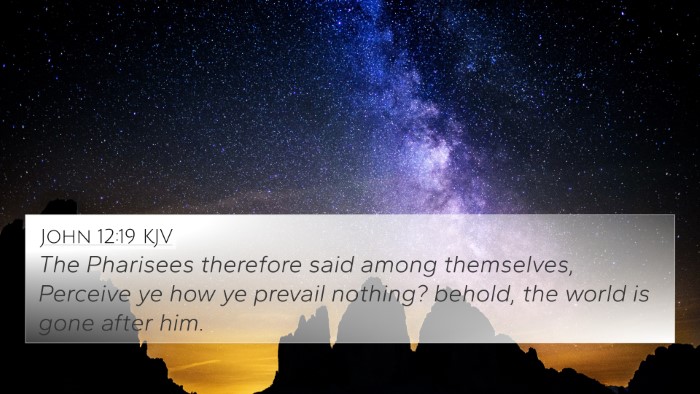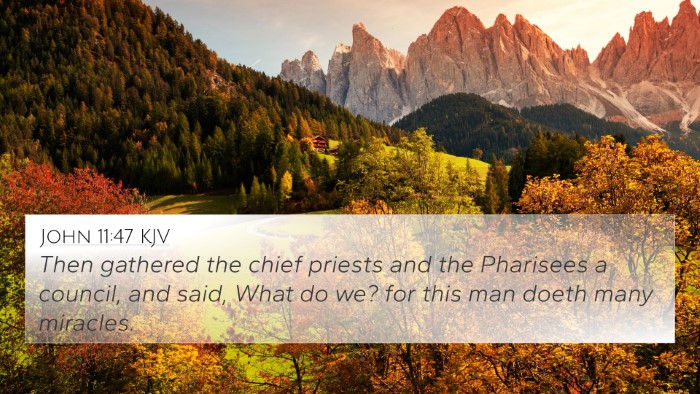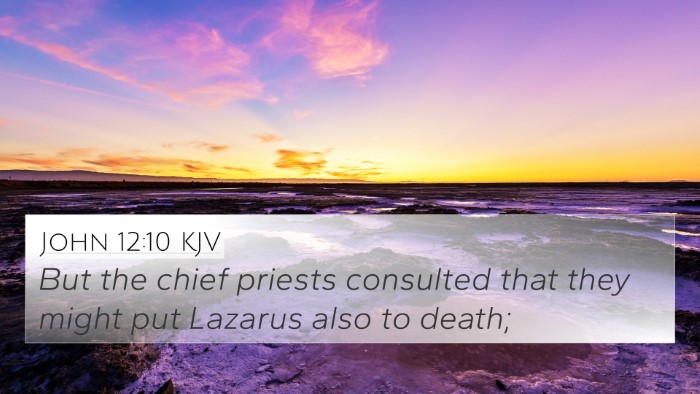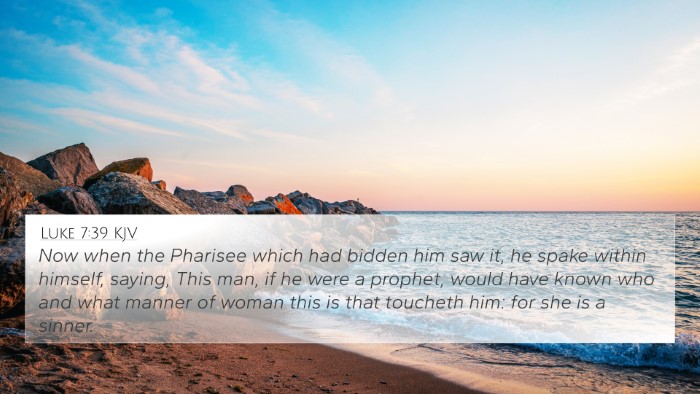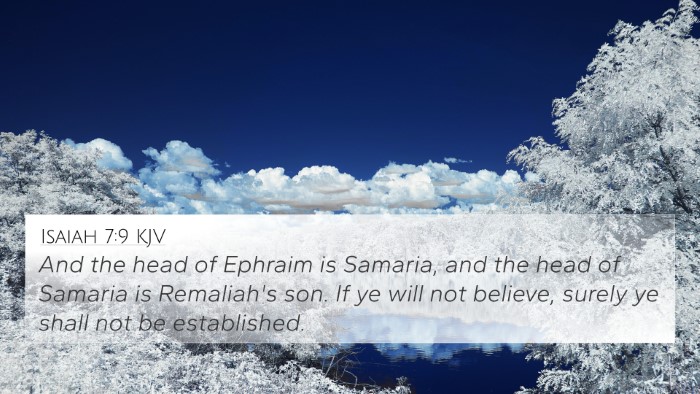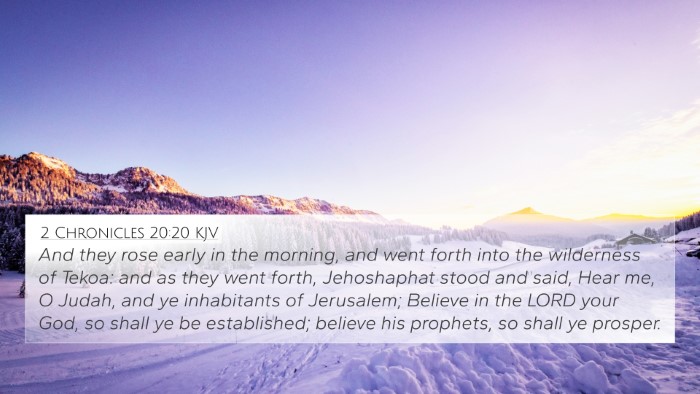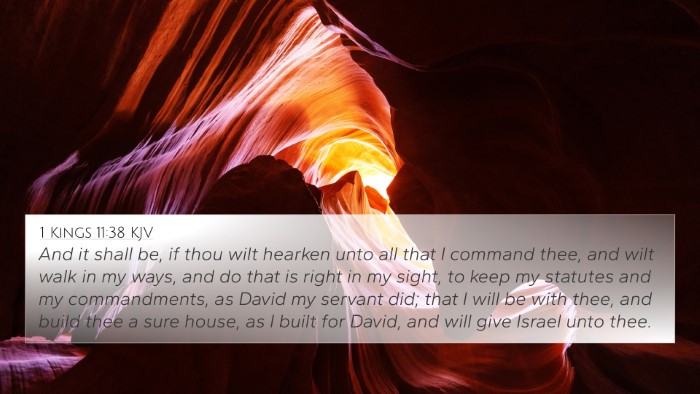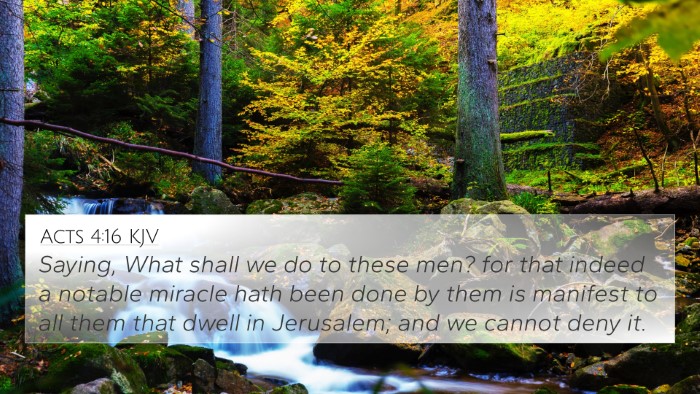Understanding 1 Kings 12:26
1 Kings 12:26 states, "And Jeroboam said in his heart, Now shall the kingdom return to the house of David." This verse captures a pivotal moment in the history of Israel when Jeroboam, the first king of the northern kingdom of Israel, grapples with the fear of losing his power due to potential political and spiritual shifts among the people.
Summary of the Verse Meaning
This verse holds significant weight as it reveals Jeroboam's internal conflict and concern about maintaining control over the newly formed Israelite kingdom. Jeroboam's fear indicates a deeper issue concerning leadership, loyalty, and the people’s allegiance to the house of David. Through this lens, we can explore the verse's implications on governance, faith, and the divine providence that plays a crucial role in the unfolding narrative of Israel's kings.
Key Insights from Public Domain Commentaries
-
Matthew Henry:
Henry comments on Jeroboam's motives, noting that his internal monologue reflects human insecurity regarding authority and the influences of heritage. His fear signifies the tension between Judaic beliefs centered on the Temple and the diverging spiritual route he contemplates for Israel.
-
Albert Barnes:
Barnes emphasizes that Jeroboam’s concern indicates a strategic awareness of the people's devotion to the legitimate lineage of David. This insight shows how political anxiety can lead to misguided actions in leadership, deviating from God’s guidance and resulting in potential idolatries.
-
Adam Clarke:
Clarke elaborates on Jeroboam’s mindset, examining how his fears moved him to create alternative worship practices to placate the Israelites. This response signals a pivotal moment of deviation from true worship in Israel’s history, showcasing the dangers of leading a nation devoid of divine consultation.
Connections Between Bible Verses
1 Kings 12:26 creates thematic links to various pivotal moments in the history of Israel's leadership. Below are several notable cross-references:
- 1 Samuel 8:7-9: God's warning that the people’s desire for a king would lead to challenges and oppression.
- 2 Samuel 7:12-16: God's covenant with David and the promise of an everlasting dynasty, underscoring the foundation of Jeroboam's fears.
- 1 Kings 11:29-39: The prophecy concerning Jeroboam’s rise to power and God’s rejection of Solomon's lineage.
- 1 Kings 12:20: The reaction of the tribes of Israel to Jeroboam’s ascension, emphasizing the divide.
- Jeremiah 23:5: Prophecy of a righteous branch from David’s line, reflecting on the rightful leadership expected by the Israelites.
- Ezekiel 37:22: A vision of reunification of Israel's divided factions under one leader.
- Matthew 2:6: A reference to the lineage of David in the prophecy concerning Jesus' birth, linking back to the promises made to David.
- Luke 1:32-33: The angel's announcement to Mary concerning Jesus ruling over the house of Jacob forever.
- Romans 11:1-2: The concept of God preserving a remnant of Israel, tying back to leadership and divine selection.
- Revelation 5:5: The reference to Jesus as the Lion from the tribe of Judah, affirming His rightful leadership inherited from David.
Thematic Bible Verse Connections
This verse can also be explored through the lens of thematic connections within the broader narrative of the Bible:
- Leadership and Authority – Examining the dynamics of God-given authority and the earthly struggles associated with it.
- Faith and Idolatry – The importance of fidelity to God against the backdrop of political pressures and societal expectations.
- Covenant and Lineage – The significance of the Davidic covenant and how it shapes the identity and expectations of Israel.
- Divine Providence – The role of God’s sovereignty in guiding history, despite flawed human leadership.
Inter-Biblical Dialogue
Through comparative analysis, we can see how 1 Kings 12:26 interacts with other biblical texts to enrich our understanding of leadership and spiritual fidelity. Throughout the Bible, the patterns of leaders struggling with insecurity and their impacts on the people provide a rich field for study.
Tools for Bible Cross-Referencing
Utilizing tools for Bible cross-referencing can help in studying verses like 1 Kings 12:26. Tools such as a Bible concordance or cross-reference guides enable deeper insight into the interconnections between various biblical texts.
Conclusion
The verse 1 Kings 12:26 is more than a simple statement; it opens a dialogue about leadership, faithfulness, and the importance of seeking divine wisdom in positions of power. Understanding this verse through the lens of associated biblical texts enhances our grasp of the spiritual and political themes that permeate the narrative of the Old and New Testaments.


